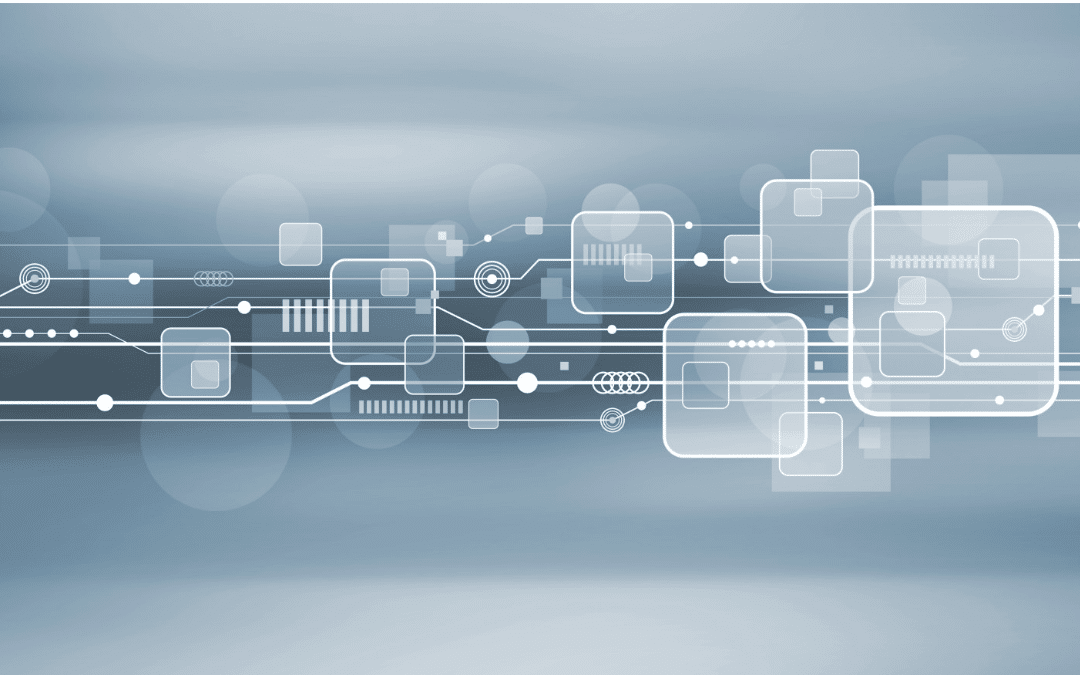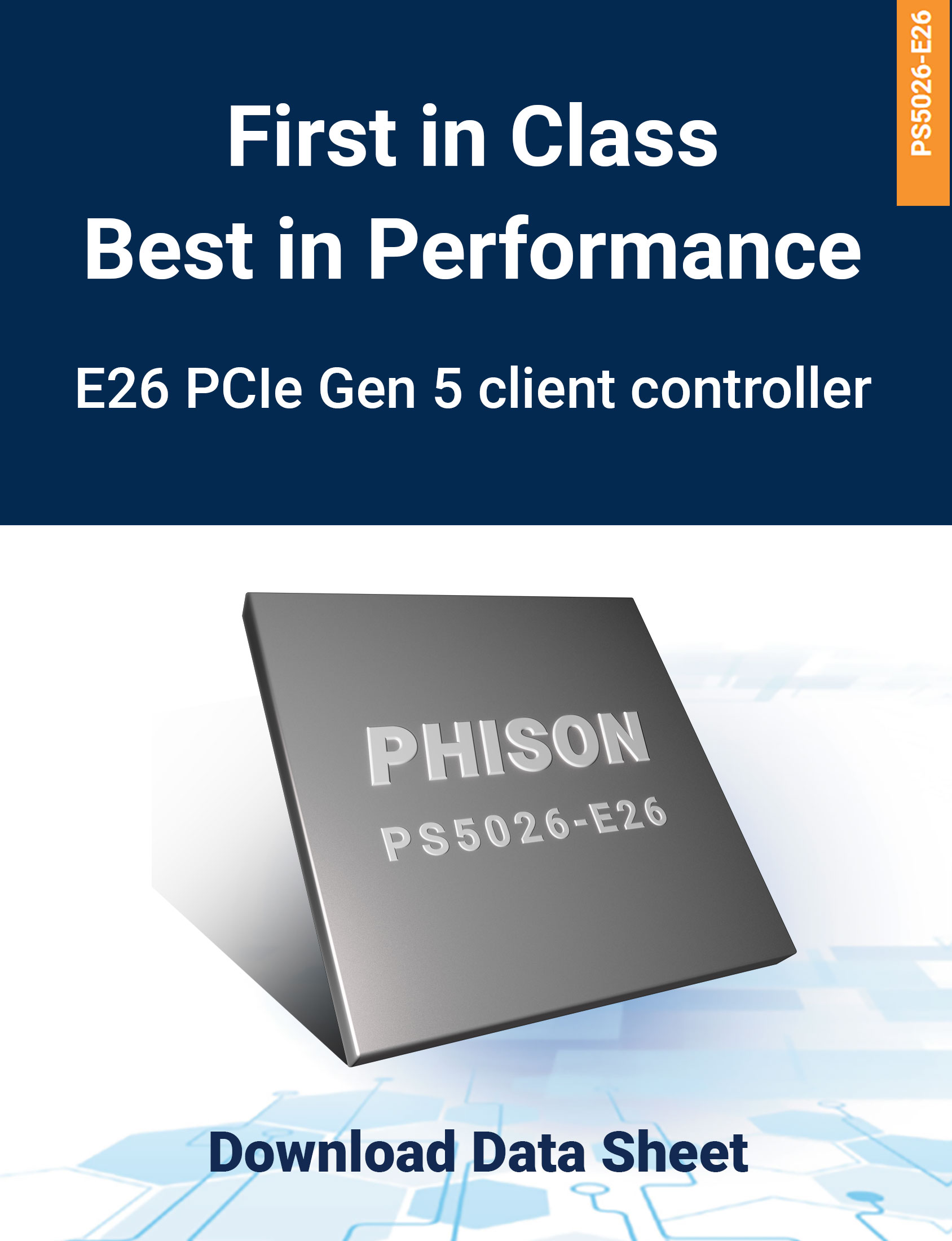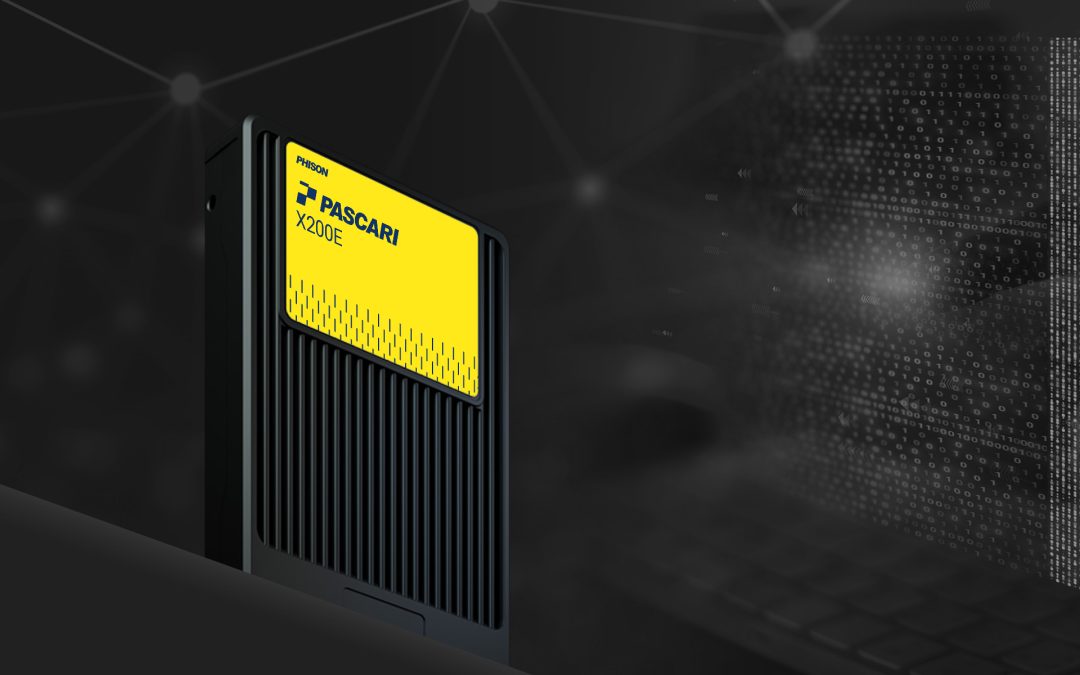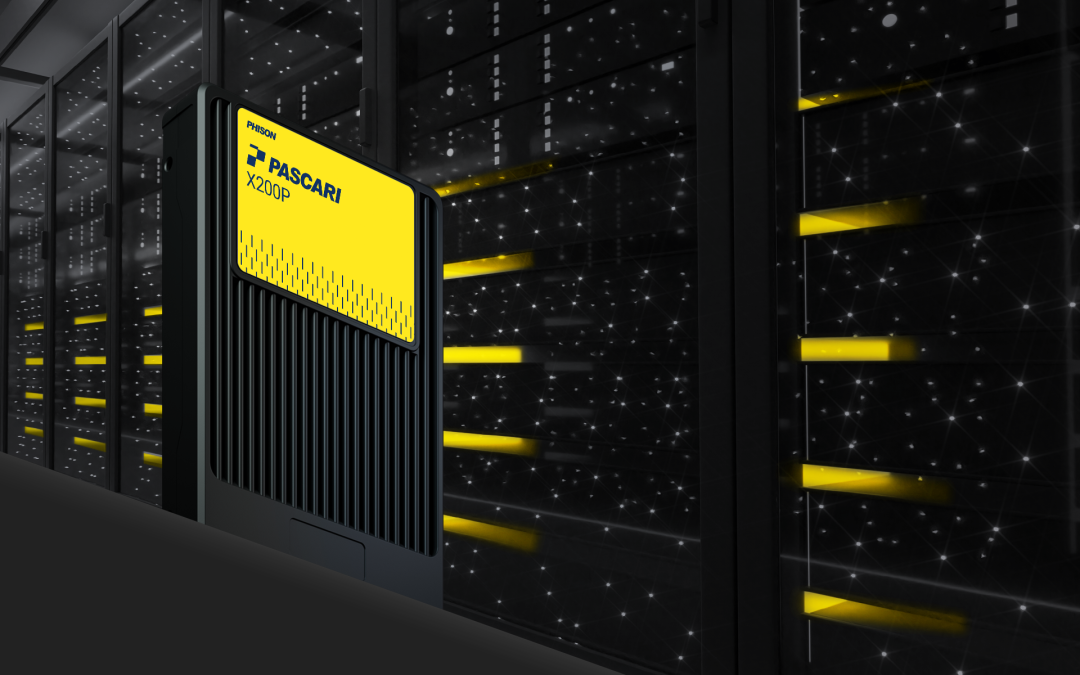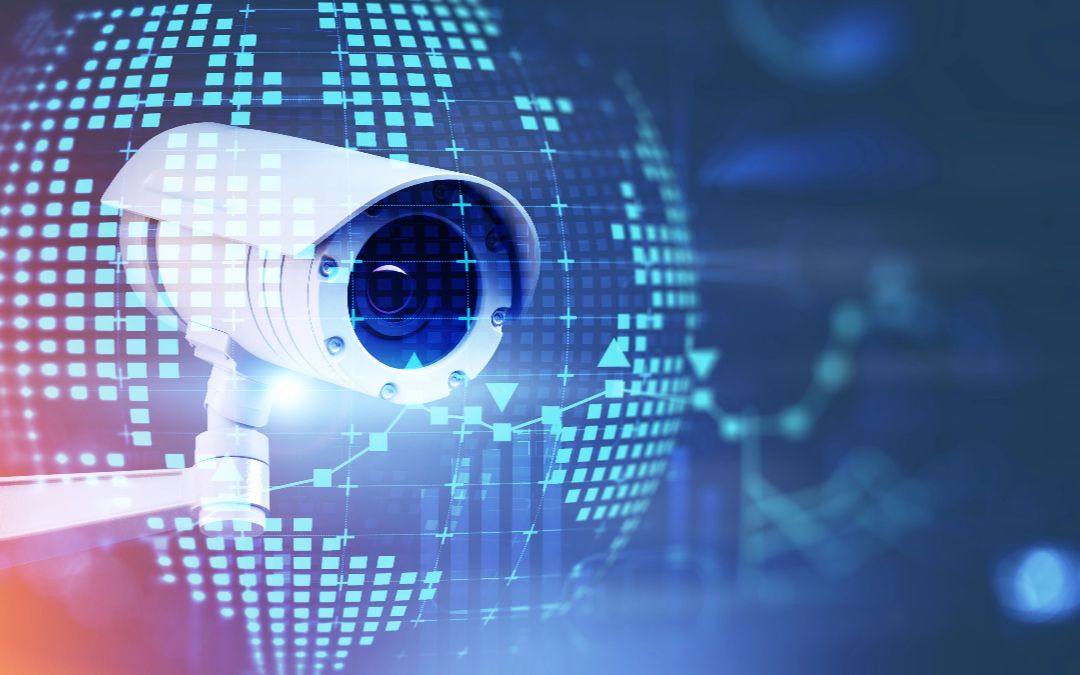Phison is proud to be the world’s leading SSD manufacturer. In fact, Phison manufactured 90% of retail branded Gen4 SSDs worldwide in 2020. So why does Phison believe in SSDs over HDDs? Well, there are many reasons, but first, some background into the differences between SSDs and HDDs.
What is an SSD?
A solid state drive, or SSD, is a storage device made up of semiconductor circuits and an array of NAND cells that store data as electrical voltages. Having no moving parts, SSDs are fast, high and low temperature tolerant, and able to work in high vibration environments.
SSDs are different from HDDs because they have something called endurance, or a maximum number of times a NAND cell containing data can be written to. Exceeding this specification means that the cell can no longer hold data in that location, and the SSD gradually loses its overall storage capacity over time. But that is usually a slow process and can be managed if the right SSD is chosen for the right application.
What is an HDD?
A hard disk drive, or HDD, is a mechanical and magnetic device made up of spinning glass or aluminum disks with read and write heads that fly over the disks. Data is written on tracks on the surface of the disk.
HDDs have a small number of benefits over SSDs, and the strength of these benefits are fading over time as SSDs become more prevalent. There is no “endurance limit” to the number of times data can be written to an HDD disk. Plus, because the HDD industry has been in volume manufacturing since the 1980s, HDDs still offer the lowest cost in dollars per gigabyte. But, overall, Phison still believes SSDs are the better choice.
Here are three reasons SSDs are better than HDDs for your data center.
1. Speed
Speed is a significant area where SSDs clearly win over HDDs.
HDDs are very slow to read and write data as compared to SSDs. This is because HDDs are mechanical devices and physically need to match up a track on a spinning disk with the read or write head before any data can be transferred. Plus, the data can only be transferred as fast as the disk is spinning, so there is a limit to how much speed you can get from an HDD.
SSDs have faster performance than HDDs because the read/write speeds to the storage area use fast electrical voltages. No mechanical parts need to move to read or write data physically.
2. Reliability
Data security and reliability are crucial to any data center.
The physical mechanisms used by HDDs can and will wear out over time. Plus HDDs are subject to vibration, which can prevent the heads from properly aligning with the data tracks. HDDs also consume more power than SSDs to move their mechanical parts. SSDs, on the other hand, are far more reliable than HDDs because they do not have mechanical parts that wear out. And because they have no moving parts,
SSDs can operate in challenging vibration environments, such as manufacturing equipment, where an HDD could never function.
3. Temperature Tolerance
Heat management and energy efficiency are also crucial to the running of large data centers.
HDDs need to operate in tightly controlled temperature environments to ensure there is no thermal expansion or contraction between when the data is written or read that could physically make it impossible to find the correct position of the data again.
In contrast, SSDs can operate in extreme heat or extreme cold since there is no concern about magnetic data on a disk expanding or contracting with changing temperatures, making them the perfect choice for data centers.
SDDs are the winner
Phison is proud to back their support of SSDs. And although a SSD’s cost per gigabyte is still at a premium over an HDD’s, the price trend over the last several years proves that SSD pricing is closing its gap with HDD pricing.
In fact, for lower storage capacity drives (those under 128 GBs), SSDs are less expensive than HDDs! This is because there is a minimum fixed cost for the physical parts that make up an HDD, such as the disk and heads. That’s why SSDs can offer 32 GB, 64 GB, or even 128 GB SSDs at prices that HDDs cannot compete with. Combine that with SSDs’ speed, reliability, and temperature and vibration tolerance, and SSDs are the clear winner.
How Phison can help!
Phison is the world’s largest private-label NAND storage and IP service company. We have the broadest portfolio of private-labeled products, including SSDs, flash memory cards, and USB flash drives for both the consumer and enterprise markets. We also offer custom ASIC design services. In fact, Phison makes more intellectual property (IP) inside NAND storage controllers than any other company. Phison has a complete portfolio of stable, optimized controller IPs to offer customers enhanced designs and enable faster times to market.
So, if you’re seeking a reliable SSD solutions provider you can depend on, look no further than Phison.
Frequently Asked Questions (FAQ) :
How does SSD reliability impact data center uptime?
Without mechanical parts, SSDs are less prone to failure. This increases system stability and reduces the risk of downtime or data loss, supporting continuous access to academic platforms such as learning management systems and research databases.
Is endurance a concern for SSDs in academic settings?
Enterprise SSDs are built to handle high write workloads with advanced features like wear leveling and over-provisioning. With proper selection, SSDs can support long-term use in applications such as backup systems, surveillance storage, and campus cloud environments.
How does Phison support SSD deployment for higher education IT teams?
Phison offers a full line of enterprise SSDs tailored for data centers and research use. Their deep controller IP portfolio allows customization and optimized performance, with design and integration support to help institutions get to deployment faster.
Why is Phison a trusted partner for enterprise SSD solutions?
Phison leads the industry in NAND controller innovation and holds more controller IP than any other company. This enables better product design, firmware reliability, and long-term support, helping institutions maintain consistency across growing IT infrastructures.
Are SSDs the right fit for cloud and hybrid IT strategies?
Yes. SSDs provide the speed, reliability, and efficiency needed for cloud-first and hybrid architectures. They support faster data access, reduced latency, and scalable performance for applications such as virtualization, content delivery, and edge processing.
